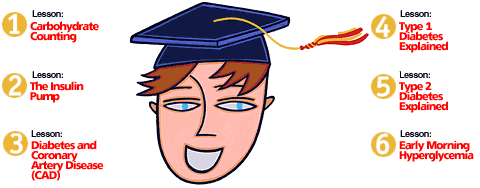
Dawn Phenomenon

Dawn Phenomenon
The Dawn Phenomenon refers to an increase in blood glucose levels sometime during the early morning (usually between 3 a.m. and about 8 a.m.) due to increased glucose production and insulin resistance.
The dawn phenomenon is mostly influenced by such factors as:
This condition stems from the body's release of counterregulatory hormones to compensate for falling blood glucose levels.
The Dawn Phenomenon occurs in the early morning, and can be treated in three ways:
The Somogyi effect, on the other hand, progresses gradually throughout the night and is treated by lowering insulin doses before bedtime, or by increasing food intake at bedtime.
Since these two conditions are very similar, it is necessary to check your blood glucose levels a few times during the night for several nights in a row, usually between 2 a.m. and 3 a.m., to determine when the fluctuations begin to occur. If your blood glucose level rises during most of the night, it may be caused by the Somogyi effect. If your glucose levels are stable until the early morning, you may be experiencing the dawn phenomenon.
Assignment #2
 Now that you've immersed yourself in all this knowledge, how about another crack at that quiz?
Now that you've immersed yourself in all this knowledge, how about another crack at that quiz?
We hope you scored higher this time! If not, why not browse back through the lesson again on your spare time? If you do, you deserve a pat on the back, partner!
Assignment # 3
Check your blood glucose level several times a day for a week, and calculate any substantial fluctuations in glucose levels. Is it higher after soccer practice? Eating a large meal? See if you can account for all fluctuations; if fluctuations appear for no understandable reason, check with your physician.
Copyright © 2000-2026 savvyHEALTH.com. All rights reserved.
http://www.savvyHEALTH.com/
All contents copyright © 1999-2026 savvyHEALTH, Inc. All rights reserved.
This internet site provides information of a general nature and is
designed for educational purposes only. If you have any concerns about
your own health, you should always consult
with a physician or other healthcare professional. Please review the Terms of Use before using this site. Your use of the site indicates your agreement to be bound by the Terms of Use.